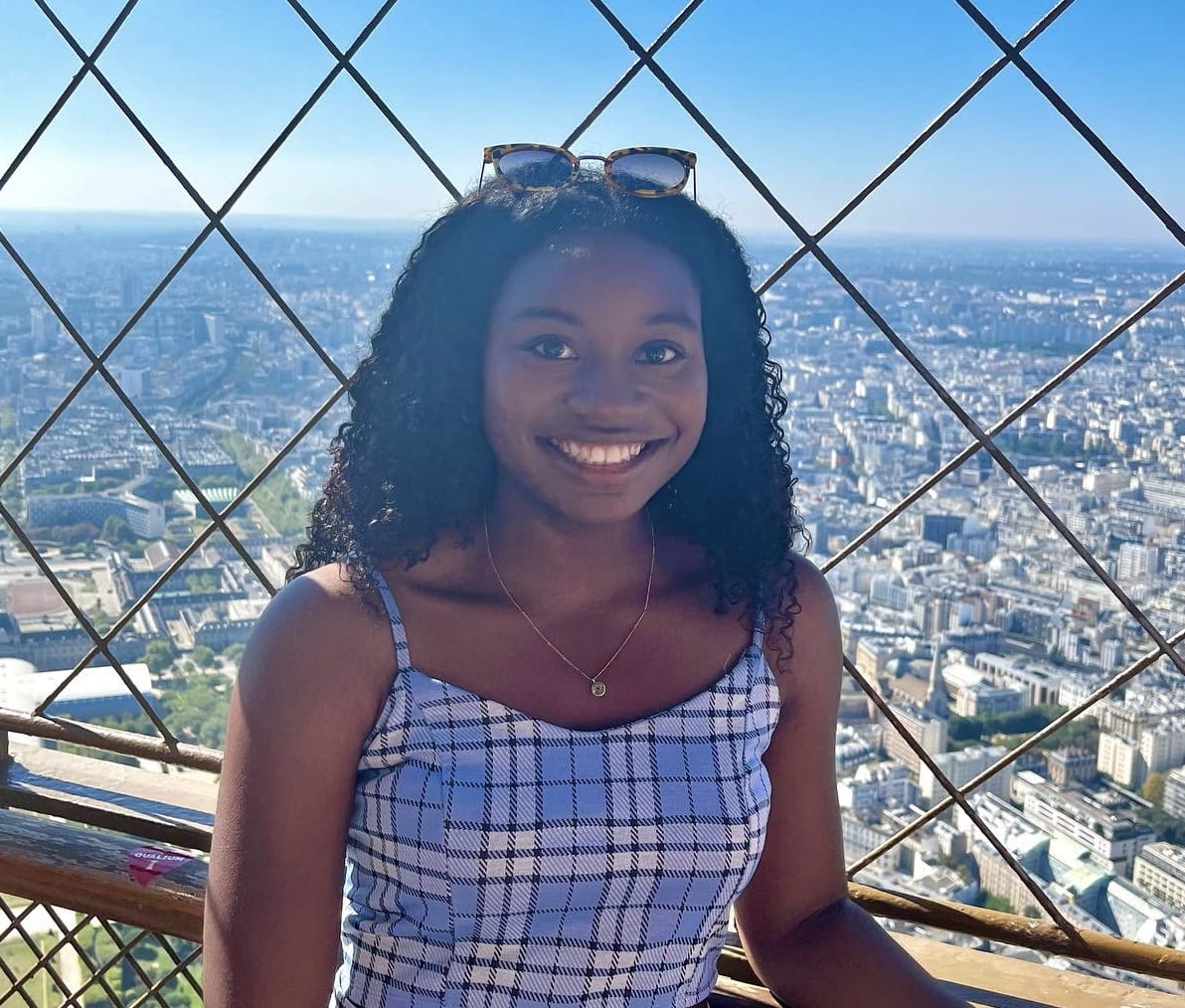
Celine Crooks
Major: Human Biology
U.S. Medical Racism
Biography:
Hi everyone! My name is Celine Crooks and I am a 4th year Human Biology Major. I hope to become a pediatrician and a medical professor in the future. At UCI I am a peer academic advisor for the school of biological sciences and a resident advisor. I really enjoy guiding and helping other students through their academic career. In my free time I enjoy weightlifting, gardening, and spending time with friends and family. In the future I would love to become fluent in another language, travel to Jamaica and Italy, and take boxing classes.
Medical disparities have always been something I was interested in and passionate about. I believe that the more individuals educated on these disparities they are more likely to focus on ways to prevent these disparities from impacting more and more individuals. By knowing the specific social, environmental and behavioral factors that contribute to why these disparities exist, we are able to better prevent these problems.
Course Description:
This course covers the topic of racial disparities in medicine among certain minoritized groups and how those disparities impact today’s society. For example we will cover the case of Henrietta Lacks, whose cells were stolen from her by her physician as well as the Tuskegee Syphilis Experiment the overall impacts that such cases have on minority population groups. We will be discussing how disparities in health behaviors, clinical care, social and economic factors, and the physical environment have widened the gap for minority individuals in the healthcare field. Medical racism cases can become extremely controversial, because although lessons are often learned, it is done at a tremendous cost to underrepresented groups. By evaluating some of the main factors that generate these disparities including their purpose, causes and effects, and the central figures in medical racism cases, the course aims to define the concept of medical racism and understand the underlying impacts on today’s society in the United States.
Enrollment Information:
Time: Wednesday, 1:00pm-1:50pm
Place: DBH 1420
Course Code: 87631
Faculty Mentor: Brian Sato
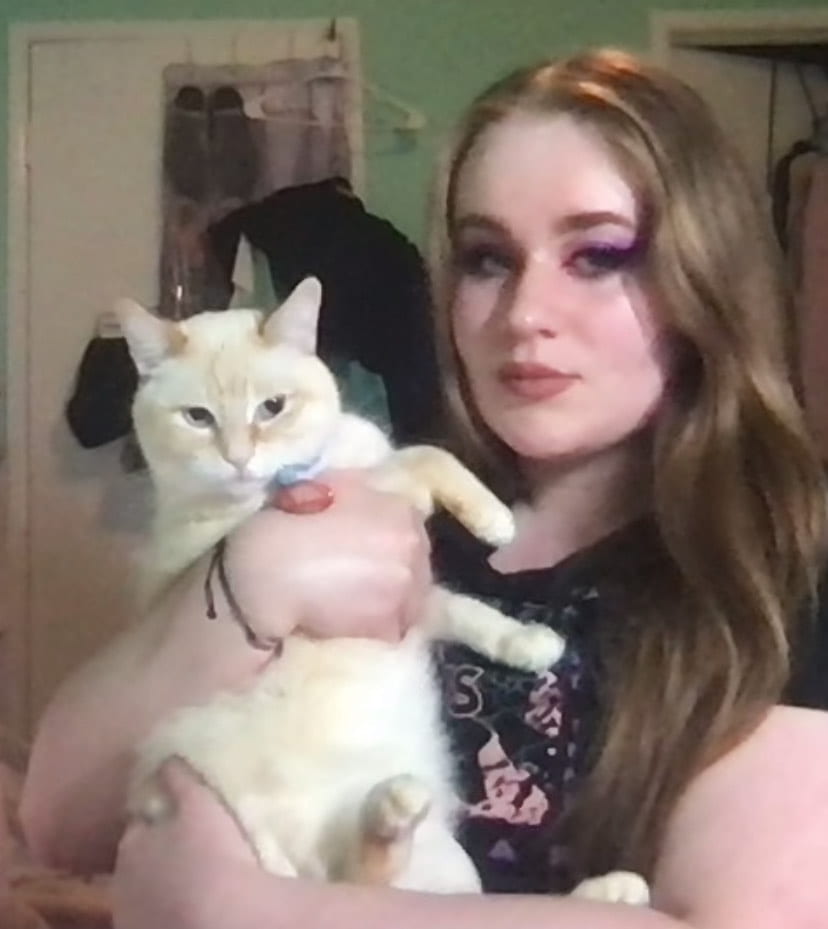
Anastasia Poponina
Major: Psychological Sciences, Criminology
Queer Psychology
Biography:
Hello, my name is Anastasia and I’m holding my cat, Winter! I am a 3rd year psychological science and criminology double major. In my free time I like working out, reading, practicing makeup, and hanging out with Winter. When my experience in research led me to realize the extent to which queer people have been excluded from psychology due to decades of pathologization, conversion therapy, and discrimination, I felt the necessity to create this course. Psychology is supposed to be the study of the mind, and I think any such study is incomplete when certain types of minds have been systematically excluded.
I am grateful that UTeach is giving me the opportunity to create a space to center marginalized perspectives. Everyone is welcome in my course, regardless of their identity or experience with the topic. If there is anything I want students to take away from my course, it’s that the health disparities we discuss in the course are not evidence of anything “wrong” with queer people, but instead a product of structural violence. Also, no one should ever have to sacrifice parts of themselves in order to be loved, accepted, and safe
Course Description:
This course will focus on how psychology defined queerness and framed health disparities found in the queer community, as well as how this has changed over time. Importantly, it will highlight the most recent research and understandings of queer health. I will highlight examples of how the queer community was pathologized, such as how queer identities were included as diagnoses in the DSM. As a counterpoint, I will also present a history of scientists and queer activists that fought homophobia and transphobia in psychology, as well as present-day research about the health of queer populations. Students will be challenged to develop critical thinking skills that help them understand how the scientific method is a social process that can impact marginalized groups. They will also develop an understanding of how stressors related to structural, interpersonal, and internalized homophobia and transphobia contribute to the health disparities discussed in the course.
This course will involve potentially triggering content, including topics such as conversion therapy, depression, suicide, discrimination, and trauma. While I will try to make the course as accessible as possible, discussions of such topics is an unavoidable aspect of the course given the subject matter. Please be mindful of this when considering enrollment in the course.
Enrollment Information:
Time: Wednesday, 3:00pm-3:50pm
Place: DBH 1420
Course Code: 87632
Faculty Mentor: DeWayne Williams
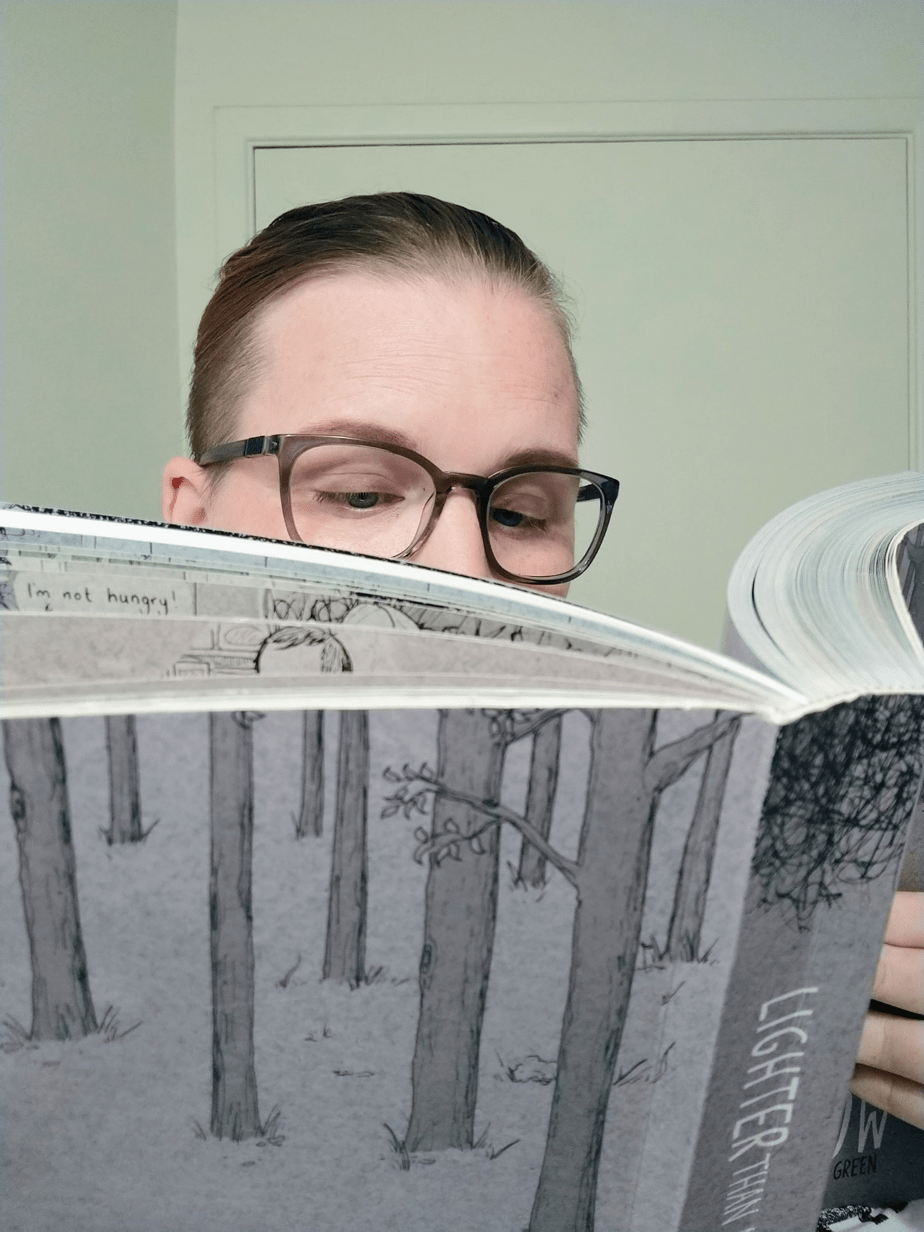
Dee Richards
Major: English
Graphic Memoirs
Biography:
Hi there! I am Dee Richards (they/them/theirs), a 4th year transfer English major, creative writing minor, and a Humanities Honors scholar. My honors thesis is a creative autofiction reflection on domestic violence narratives from the lens of feminist horror and the uncanny. Much of my coursework and creative writing has focused heavily on autotheory, autofiction, autobiography, and literary theory. Additionally, I am an avid reader of graphic novels & memoirs (I own over 50!) and I run a review series of graphic memoirs on Instagram. I am really quite obsessed with the limitless potential and strength in a person’s story, and in the telling of it. When I’m not reading or writing, I play games with my kids, garden, do at-home canning, and make far too complicated storylines for my characters in The Sims 4.
I joined UTeach because it is my hope to one day teach English full-time, and help others bring out their inner writer. Additionally, I’ve loved comic books and graphic novels since I was 8 years old and I want to share that love with others. However, if you’re completely new to the form, I will tell you that you’re in for a real treat. Graphic memoirs are such an interesting and exciting way to analyze autobiography from the dual perspective of written word and imagery. It is a wonderful exploration of the deep connections and difficulties that we all share, even though our lived experiences may differ. I can’t wait to dive into these texts with you!
Course Description:
While comic books have been a fixture in American media since the 1930’s, producing fantastical heroes in extraordinary situations, its lesser-known sibling is the graphic memoir. This exciting combination of comic art and autobiography creates provocative in-roads toward understanding the lived experiences of others. In this course, we will develop close reading skills, contemplate comic art interpretation, and explore elements of accessibility in storytelling through the medium of the graphic memoir. Students will engage with two carefully selected texts to compare and contrast the different topics and approaches to the graphic memoir, and focus on contemplation of these topics through written reflection and group discussion. How are people like you and I just as heroic in our everyday lives as the exaggerated hero of comics? We will find out together.
Enrollment Information:
Time: Wednesday, 3:00pm-3:50pm
Place: DBH 1423
Course Code: 87633
Faculty Mentor: Ted Martin
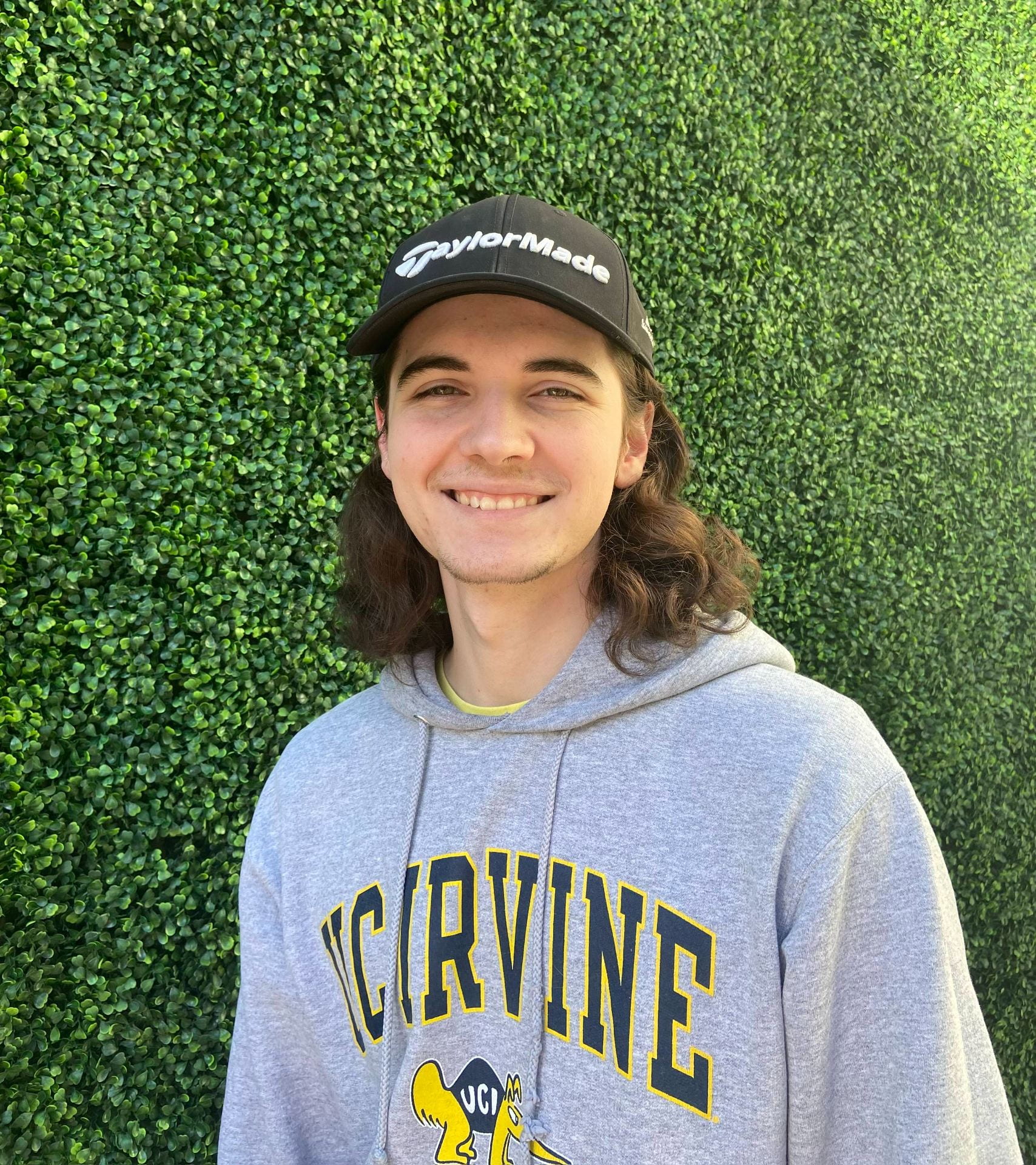
Nathan Daigneault
Major: Business Economics, Political Science
Schools of Economic Thought
Biography:
Hey my name is Nathan Daigneault I’m a fourth-year double majoring in Business Economics and Political Science. I plan on going into a master’s program either in Public Policy or Economics and eventually going into a PhD program in Economics with a focus in Public Policy and Political Economy. Currently I’m also in the Economics Honors program where I’m writing an undergraduate thesis on the impact of drug decriminalization on employment in Oregon. Outside of school I enjoy cooking, video games, and more economics. The UTeach program has given me an opportunity to share my passion for economics with you in a way most schools don’t offer, that being the philosophy behind economic theory rather than mathematics.
Course Description:
George Bernard Shaw is credited as saying “if all the economists were laid end to end, they would not reach a conclusion,” but why is this? While economics is typically seen as a science, the amount of disagreements and failed predictions in the academic community has led many to cast it off as pointless. The truth however is that economics is a field which intersects with politics, sociology, psychology, philosophy, and statistics and as such is subject to much disagreement. This class will be going over the history of those disagreements as we explore different schools of economic thought. We will discuss how these different schools came about, what they argue, why they argue as such, and how they have built off each other. We will accomplish this through a combination of lecture, active learning, and in class economic experiments that illustrate the thought processes of different economic schools. The goal of this class is not to teach you that there is any one correct school of economic thought, but rather to show why differing views on human behavior and how the world ought to be has led to frequent disagreement in a field typically considered as straightforward and objective.
Enrollment Information:
Time: Wednesday, 2:00pm-2:50pm
Place: SST 120
Course Code: 87634
Faculty Mentor: Sofia Franco
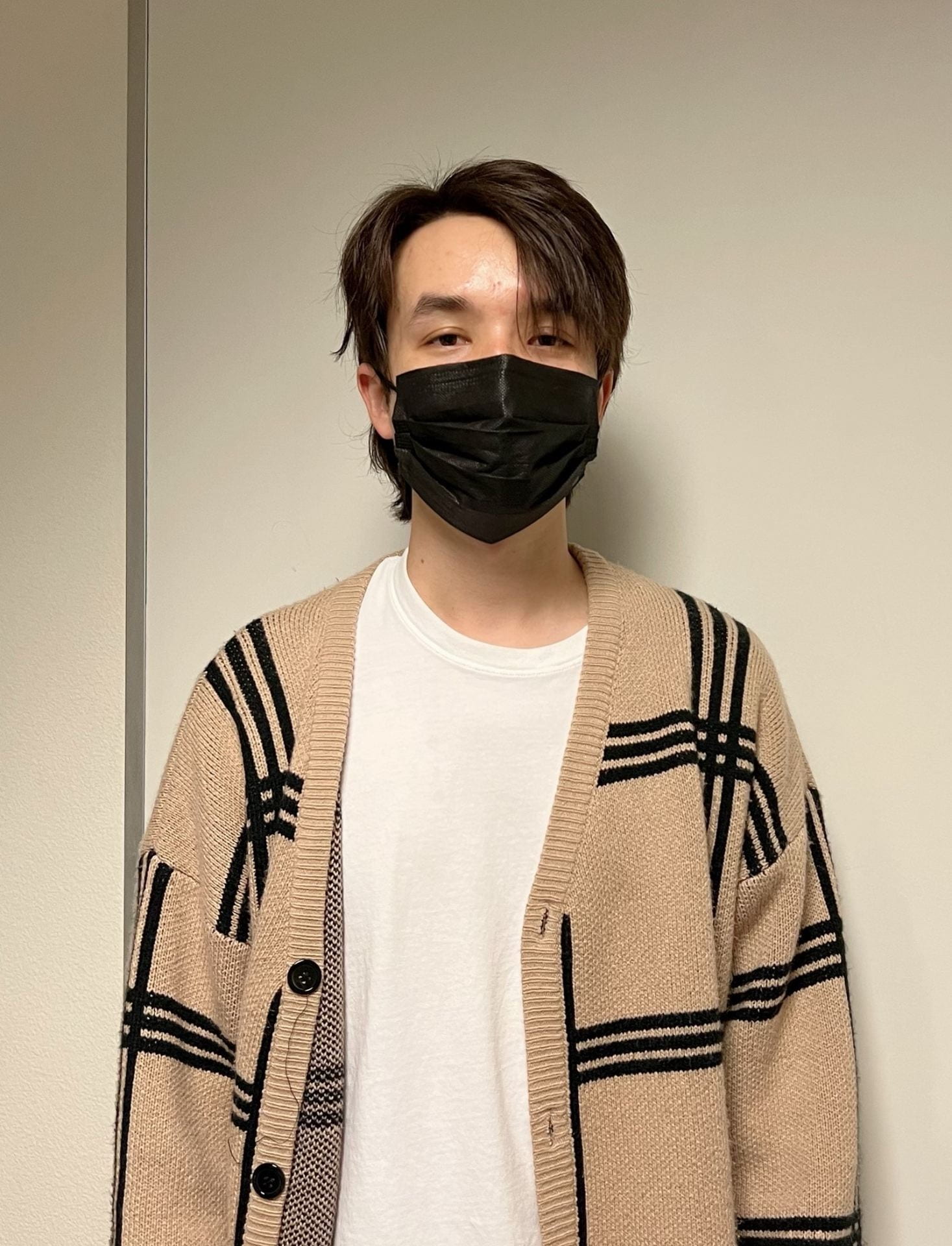
Chris Nagelvoort
Major: English
Manga: Form and Function
Biography:
Hello! My name is Chris Nagelvoort and I am a fourth-year English major with a Creative Writing minor. My likes include reading postmodern literature and manga, eating strawberries, touching base with friends once every full moon, and writing. My dislikes include making choices, DUO, and describing myself. On the side, I like to write short stories, (attempt to) engage in literary research, and act as the “treasuary” (treasurer + secretary) for the English Majors’ Association at UCI. Occasionally, I aspire to become a professor in English and write experimental coming-of-age novellas on the side. Other times, I think about dropping it all and going professional in Super Smash Bros. This course was born out of my (unashamed) teenage infatuation with manga and my collegiate fascination with formalism in art.
Course Description:
The kitsch of word art, the breach of ink and space, the severance of text and image, the paratextual hoopla, the endless between of the gutter—the seemingly banal elements coordinate into the grand design of a single, participatory art form: Manga. Originating from Japan, manga has become highly popularized in the recent decades of Western popular culture. However, behind the black and white curtains of Manga’s physical appearance and cultural reputation is a relationship of seamless form and function. It is this foundational, perspectival dimension of manga—the anatomy of panel and text box, the iconography of cartoon protagonists, the schematics of time and space, the intermittence of scenes, and the aperture of the reader’s projection—that this course will delve into. We will be learning about a new formal or cultural element of manga every week, close-read one stylistically dense manga (Oyasumi Punpun by Asano Inio), and discuss anything and everything manga with each other. By doing so, this course hopes to better understand the delicate balancing act that manga and its formal elements play in holding our attention, participation, and immersion in that crowded space between line and paper..
Enrollment Information:
Time: Friday, 12:00pm-12:50pm
Place: ALP 1110
Course Code: 87635
Faculty Mentor: Christopher Fan
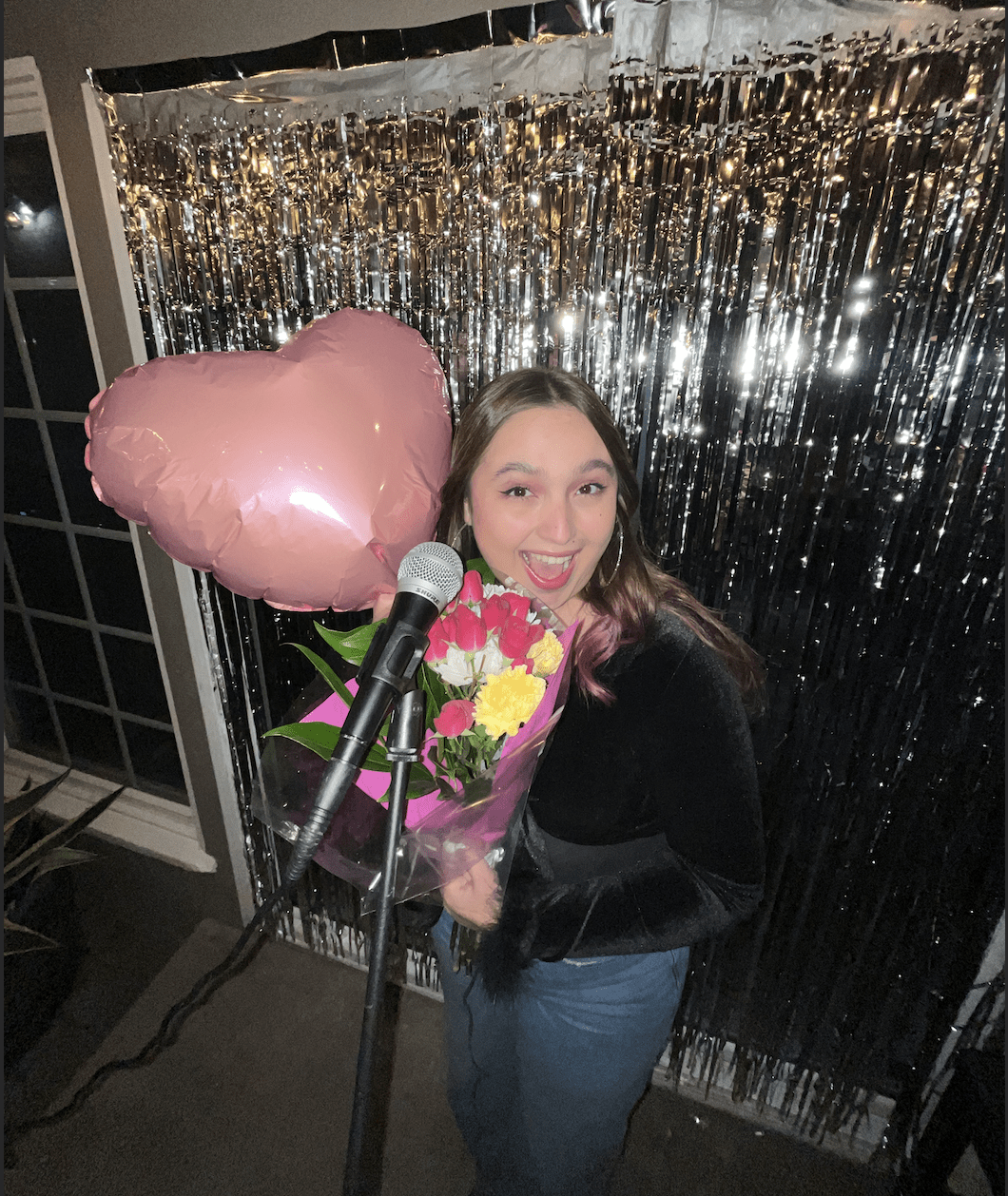
Maricruz Villalobos
Major: Literary Journalism
Love Through Audio Storytelling
Biography:
Hi! I hope you’re doing well! I am Maricruz Villalobos (she/her), and I am a fourth year Literary Journalism student with a minor in creative writing. I love reading stories just as much as I love telling them! From writing articles to lyrics, I am always on the search for new exciting ways to further express any story I come upon. I am so excited to be teaching a course on my two favorite things…love and audio storytelling. I feel that there’s so much to discover and learn from modern day storytellers.
Course Description:
There is a lot to navigate and learn when it comes to audio storytelling and I wanted these ten weeks to focus on narrative — specifically how the writers and producers introduce their characters, build their setting, and strengthen their theme in a forty minute long episode. Every week we will cover a different aspect of narrative and highlight a podcast episode that is strong in that area. I have a long list of episodes ranging from Invisibilia: We All Think We Know The People We Love. We’re All Deluded to Modern Love: Right Swipes, Big City. These two stories are completely different but hit all of the steps that make a strong story. Since we are working with audio, I also wanted us to focus on the different sound elements that are added to create tone or emphasize themes. This course will be based on literary analysis of narrative, while encouraging students to make their own inquiries about the choices made by the host and producers of the episodes.
Enrollment Information:
Time: Thursday, 1:00pm-1:50pm
Place: TBA
Course Code: 87636
Faculty Mentor: Erika Hayasaki
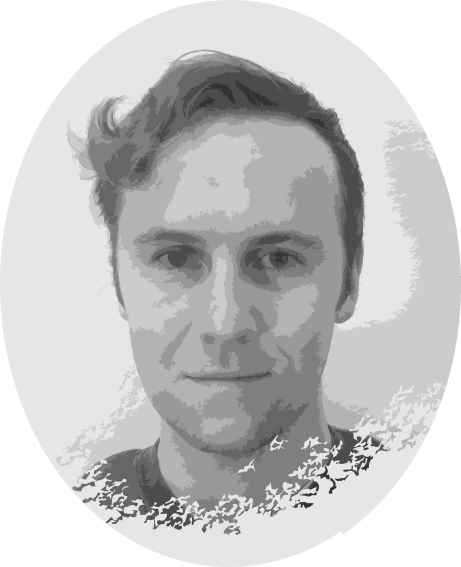
Cody Svozil
Major: Informatics
Uncertainty Talks
Biography:
Hello! I’m Cody and I am pursuing a bachelor’s in Informatics along with a minor in Statistics here at UCI. Before UCI, I was a student tutor for mathematics, statistics, and computer science at Sacramento City College where I earned an associate’s in Mathematics.
I choose Informatics as my major because I believe the tools, and systems, and knowledge we have available to us changes how we think and interact with the world. Informatics puts a focus on the design and use of computers and software for/by people and organizations. This course takes on that belief and that lense to explore a single topic, statistical uncertainty. Especially on understanding, communicating, and thinking about the implications of it.
I hope my experience working with people of varying skill levels and the chance at exploring statistics from a novel viewpoint gives you a better grasp on statistics and the space it fills out in the world.
Course Description:
Uncertainty is an integral part of going from specific experience to something generalizable and more widely useful. Statisticians quantify uncertainty through tools such as probability distributions, but then we are left with the task of understanding how these tools work and what they mean. And after understanding, there is the work of communicating what it means effectively so the more widely useful generalization will actually be used.
With hands-on and interactive examples we’ll cover some basics of statistics, how to and why communicate uncertainty, and explore multiple ways to characterize uncertainty with statistics. Statistics can be a challenge to understand, but we are going to take it step-by-step, focusing on using visuals and metaphors to grow and express our understanding while making reference to the underlying mathematics. If you can sketch a graph by hand, and have any interest in exploring data, or data communication, this course is for you.
Enrollment Information:
Time: Thursday, 1:00pm-1:50pm
Place: HH 232
Course Code: 87637
Faculty Mentor: Veronica Berrocal
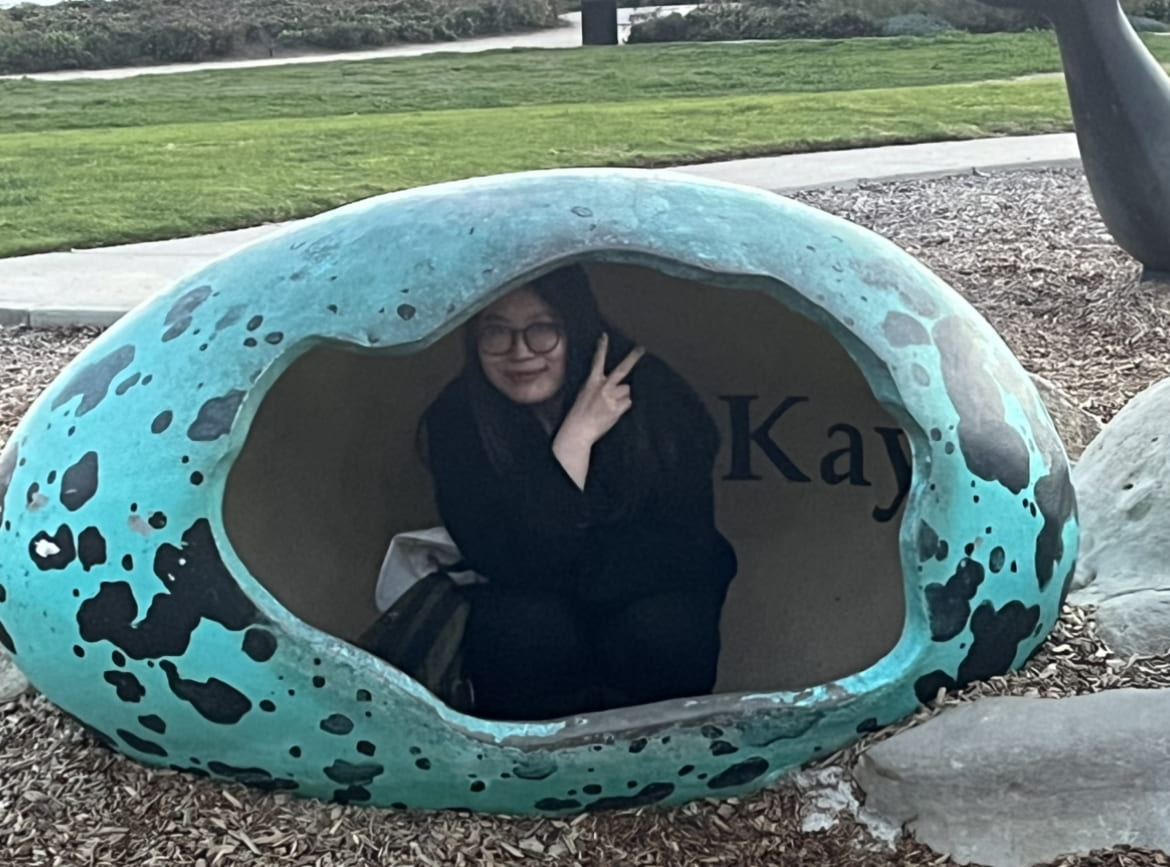
Xuan Zhao
Major: Economics
Journey of Chinese Food
Biography:
Hi, everyone!! Welcome to the Journey of Chinese Food!! I am Xuan, an international student from China, senior undergraduate student majoring in Economics and minoring in Management and Drama. Currently, I am doing my research thesis about Immigration Economics focusing on Chinese Immigration. In my free time, I work as a mentor for the First Generation First Quarter Challenge program (FGFQ) and the Diversity, Inclusion and Racial Healing program (DIRHA). Outside of academics, I am into a lot of stuff: singing, dancing, theater, stand-up comedy, learning language, drawing, reading… I play percessions in Chinese Orchestra, and also do martial arts (mainly taekwondo and Brazilian Jiu-Jitsu). The most interesting thing is to try different kinds of food! Food is an important cultural symbol and communication medium. I will try to take you to see these common things from a new perspective. Also, there are so many Chinese delicacies that have not gone abroad, and now I am going to show them to you!
Course Description:
This course is a seminar, designed for students who are interested in food culture and different forms of cultural communication. There are no academic background requirements for this course, as long as you bring your curiosity, passion and open-mindedness to this course.
Food is always an inevitable topic for humans. Different climates, cultures, and folklore influence their appearance. This class will use Chinese food as an example to explore the different cuisines that have emerged in different regions based on their own local conditions. Also, how and what made them changed after they landed in America. With food as the entry point, our discussions touch upon the social, economic, political, and impact of immigration over the years. The journey of Chinese food is not only for how the food transforms, but also a journey for you to think about food in a different way.
Enrollment Information:
Time: Friday, 10:00am-10:50am
Place: DBH 1420
Course Code: 87638
Faculty Mentor: Yong Chen
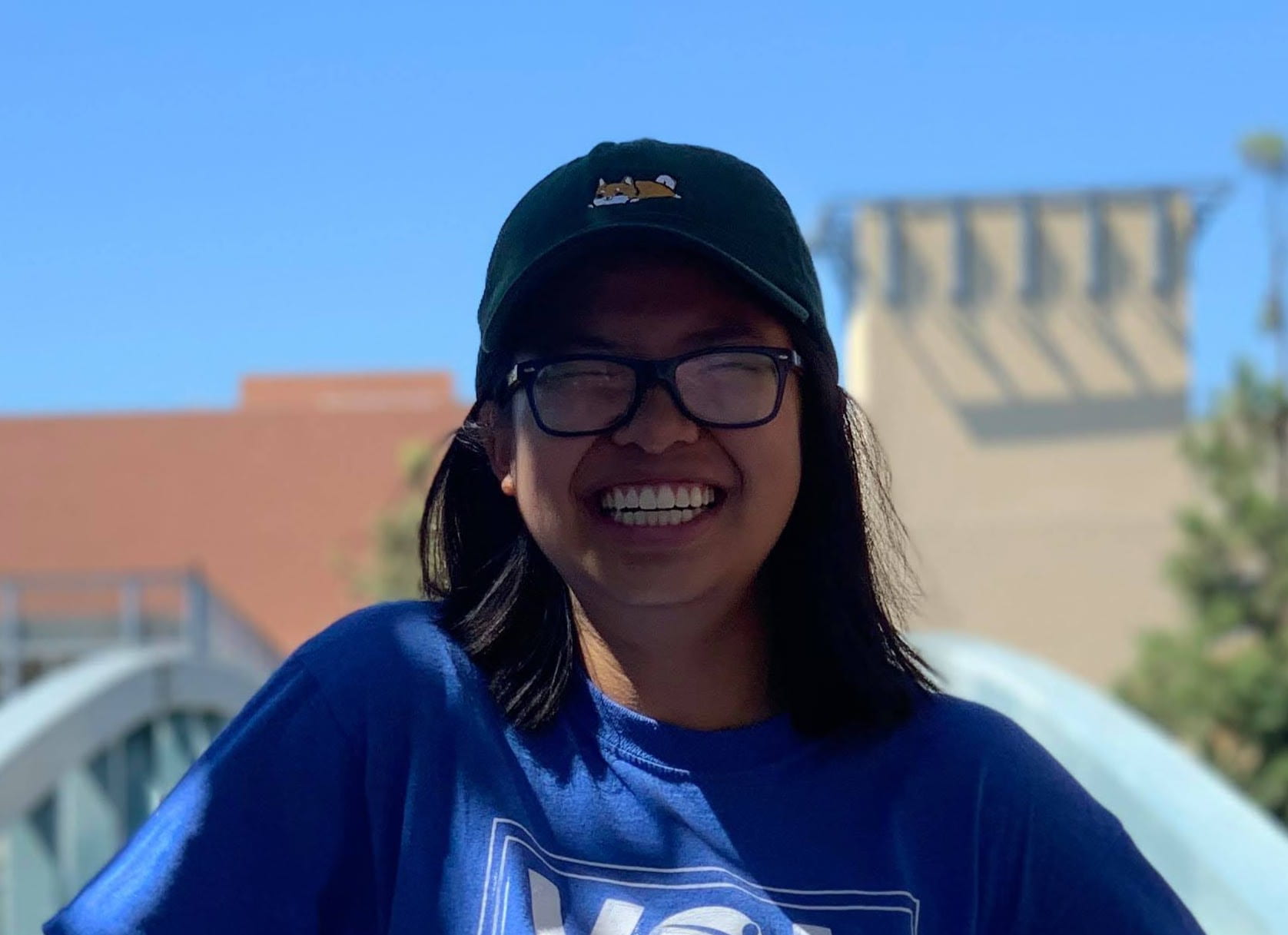
Chloe Low
Major: English
Worldbuilding in Indie Video Games
Biography:
Hello folks, and welcome to Worldbuilding in Indie Video Games!! I’m Chloe and I’m an English major with minors in Creative Writing and Literary Journalism at UCI. When I’m not scavenging for new games to play, you can find me working at Langson Library, the Center for Excellence in Writing and Communication, or doing some origami. While my studies do not center around video games, I’ve loved them my whole life and I think they are an awesomely unique medium that has the potential to teach everyone something new about the way they view the world. In this course, my goal is to introduce you to a variety of independently made games that are thought provoking, comforting, and fun, and then critically analyze why that is. You do not have to have experience playing video games before taking this class, I hope we can learn and grow while exploring indie video games together!
Course Description:
This seminar serves as an introduction to worldbuilding through its application in indie video games. In this course, worldbuilding will be defined as the construction of an imaginary world. We will engage in the world building techniques of video games, including game mechanics, storytelling, sounds, and visuals. We will be able to identify elements of worldbuilding in an academic lens and articulate critical perspectives on their effectiveness in indie video games. The goal of the course is to develop the language to describe the mechanics of indie video games effectively, illuminate understanding of worldbuilding as a methodology, and have the opportunity to engage in a variety of indie video games. No previous experience with video games or video game theory is necessary.
Enrollment Information:
Time: Friday, 11:00am-11:50am
Place: DBH 1420
Course Code: 87639
Faculty Mentor: Braxton Soderman
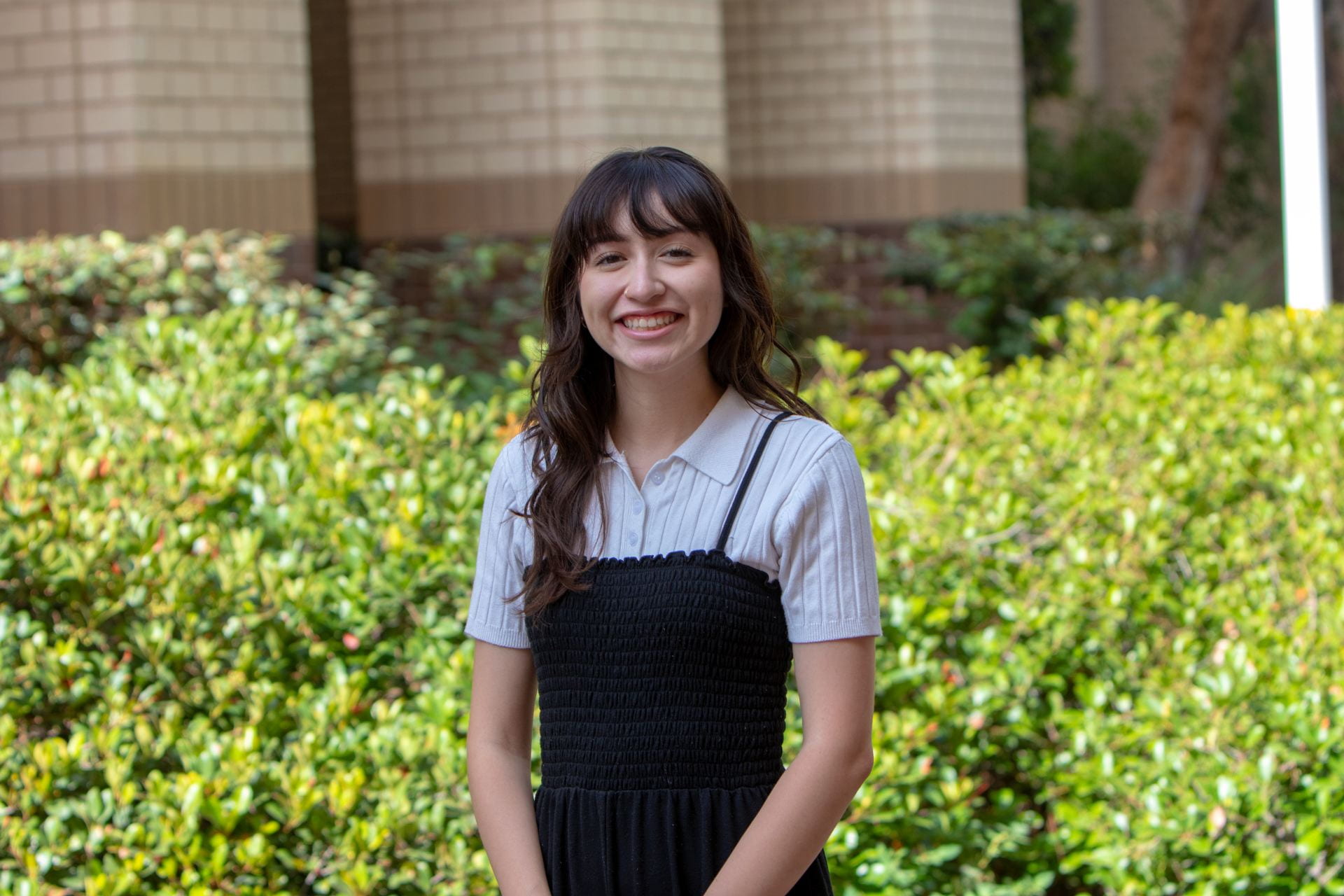
Beatriz Galeana
Major: Psychological Science
Studio Ghibli and the Eco-Narrative
Biography:
Hi everyone! My name is Beatriz (she/ella) and I am a first-gen, third year Psychological Science major with a minor in Medical Anthropology. Outside of class, you can find me working at the Writing Center, browsing record stores to add to my collection, or writing pseudointellectual movie reviews on Letterboxd. I first discovered Studio Ghibli when I was eight and have had a passion for animation and cartoons ever since. This course was born from my Humanities Core research project, where I was able to combine my love for Miyazaki films with my interest in humanity’s relationship to the environment. I hope that students will learn to critically engage with the media they consume and consider how it affects them and creates messages about the world around them.
Course Description:
This course focuses on environmentalist themes shared across three Studio Ghibli films directed by Hayao Miyazaki: Princess Mononoke (1997), Ponyo (2008), and Nausicaa of the Valley of the Wind (1986). During group discussions, we will analyze the films and assess the framing of humanity, civilization, and technology in relation to the natural world. Students will learn about the principles of animation and evaluate its use to tell fantastical stories with real-world implications. Our conversations about human-nature coexistence will be guided by readings and lectures about Japan’s environmental history and the links between the environment and marginalization. Students will be encouraged to pursue their own interpretations of each film through journal entries and creative assignments. No prior knowledge of film or Japanese language required.
Enrollment Information:
Time: Wednesday, 11:00am-11:50am
Place: DBH 1420
Course Code: 87640
Faculty Mentor: Jon Pitt
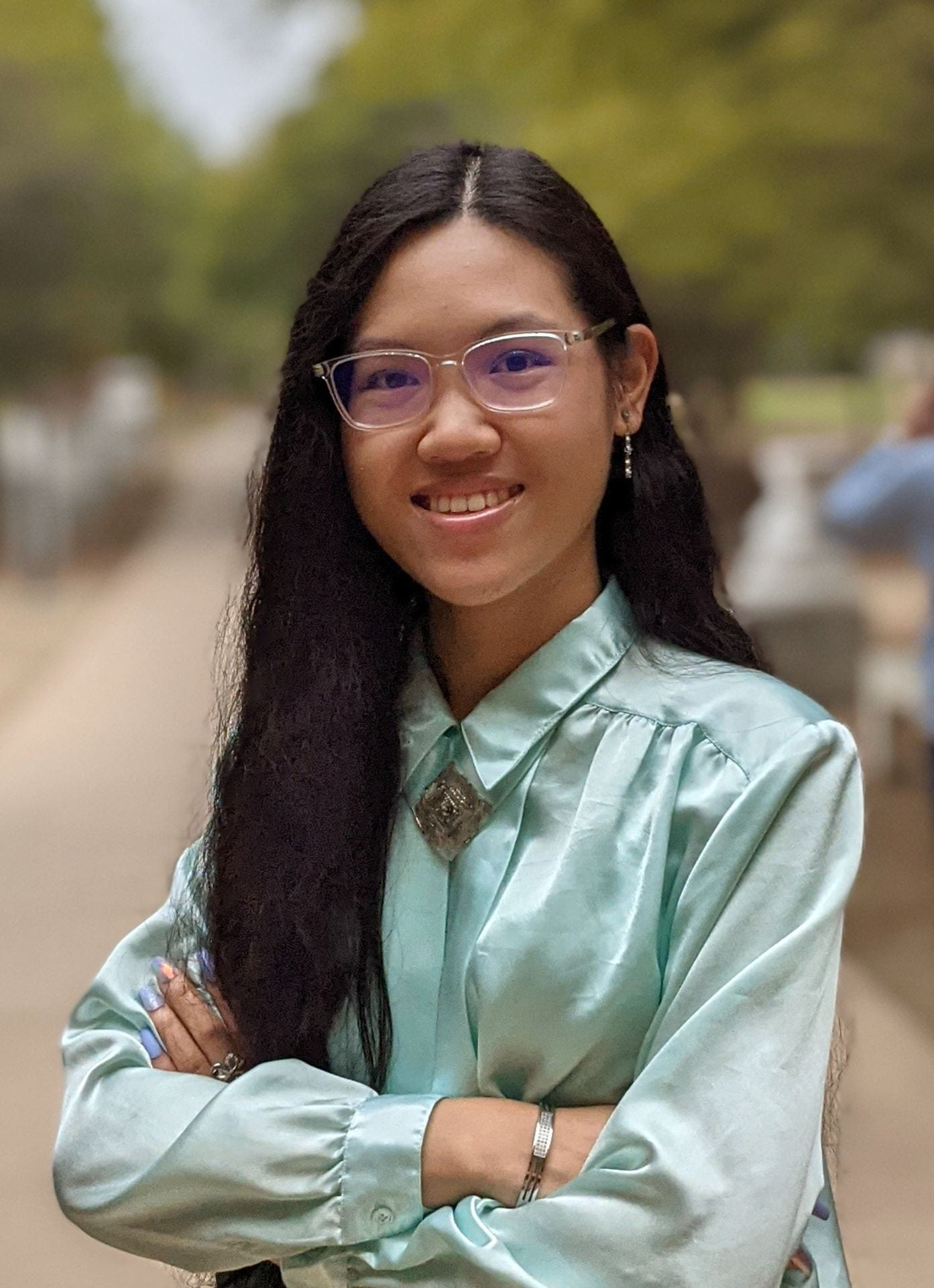
Rachel Wang
Major: English
Exploring Webtoons
Biography:
Hello! My name is Rachel Wang and I am a fourth-year English major (with a specialization in Future Teachers) and a Psychological Science minor in the Campuswide Honors Collegium (CHC). I love reading/writing, music (R&B/hip-hop), food, fashion, watching shows/animes, and—of course—reading Webtoons! In this course, I hope to share my love of Webtoons with you and show why it is such an exciting platform to dive into.
My other involvements on campus include supporting various courses as a Learning Assistant (primarily English 9 and PsychFund 9B/11B), serving as the President of the English Majors’ Association (EMA), and serving as a Co-Editor of the Neon Anteater Renaissance (CHC’s creative works journal). My senior thesis explores the role that fashion plays in women defining their identity and being defined by society in turn, specifically in eighteenth-century British literature and contemporary literature. I can’t wait to work with everyone! 🙂
Course Description:
This course is about Webtoons and well-known literary themes that Webtoon creators explore through an exciting variety of genres, such as Fantasy, Romance, Historical Drama, Mystery, Action, and more. Webtoons are online comics that are read from top to bottom in a pageless scrolling format, much like a typical website on the Internet. They can be entirely read through the LINE Webtoon mobile app or their Webtoon site. In 2004, JunKoo Kim launched Webtoon after he saw the manhwa industry crash. As a comics lover himself, he wanted to create a new, engaging comics-reading experience, so he proposed Webtoons. When the app and website launched worldwide in 2014, there were only 43 Webtoons available. Since its launch, the platform has only rapidly grown—today, there are thousands of Webtoons across multiple genres from storytellers and artists around the world!
Each week, I will focus on a different literary theme or a well-known story, myth, or fairytale. For each weekly theme, I will select three Webtoons that interpret the theme through different genres, historical periods, or art styles. Themes include: “AI and Humans: Defining Love, Sentience, and Humanity,” “Inner vs. Outer Beauty,” and “‘The Little Mermaid’ – Retellings of a Classic.” My goal is to help foster an appreciation for Webtoon’s unique storytelling format so that hopefully, you will feel inspired to continue reading Webtoons beyond this class and connect them to stories and topics that matter to you!
Enrollment Information:
Time: Monday, 4:00pm-4:50pm
Place: DBH 1420
Course Code: 87641
Faculty Mentor: Julia Lupton
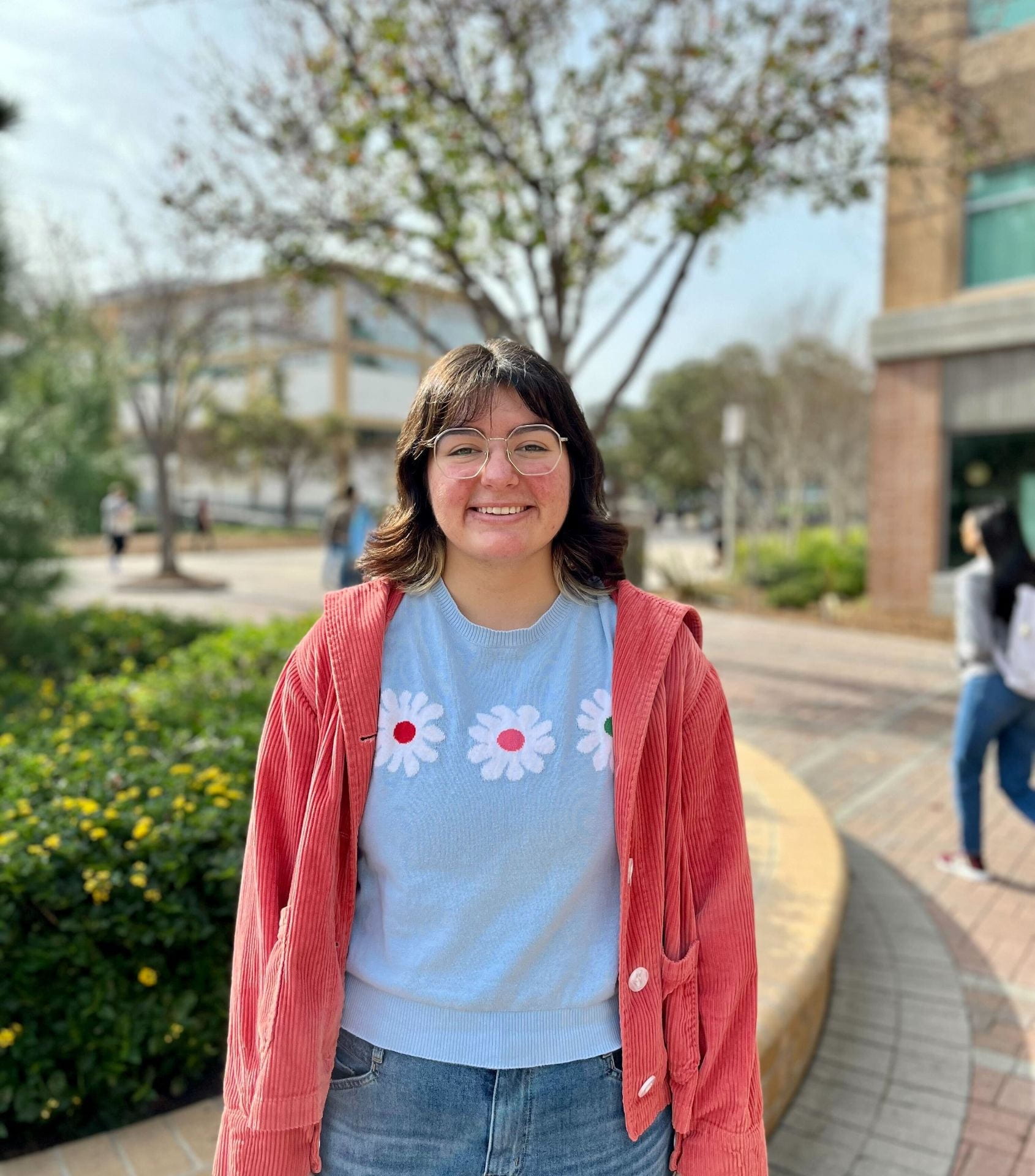
Bethany Hatsios
Major: English, Film and Media Studies
Contemporary Horror
Biography:
Hello there! My name is Bethany Hatsios and I’m a graduating 4th year undergrad! Out of either enthusiasm or indecisiveness (or both?) I am a Film & Media Studies and English double major with a Creative Writing minor.
After stumbling across horror films as a child, without my parents knowing, horror became and has remained the most compelling genre to me in all the media I consume. Thinking about why myself and so many others feel this way has also been a passion of mine, especially in academic contexts where passion can tend to be squeezed out by deadlines, page counts, and archaic expectations. That being said, I find myself constantly torn between creative and academic aspirations… but honestly, can’t I do both? I plan to pursue graduate studies in Film & Media Studies with interdisciplinary consideration, and hope to fold more literary sensibilities into the field with my contributions!
Course Description:
“What’s your favorite scary movie?”
Horror is a constantly evolving genre that shapeshifts in reaction to different cultural contexts and historical anxieties and sensibilities. It almost seems like what people find scary changes. We will trace some of the most important thematic developments in horror as a genre through feature screenings and in-class clips including 90s techno-horror like Kurosawa’s Pulse (2001), and even trending “elevated” horror films from the likes of Jordan Peele and A24.
We will learn about some aesthetic concepts that underpin horror as a genre, including the “sublime” and “abjection,” and use them as frameworks for analyzing specific film techniques and conventions seen in the horror genre, along with how they affect both the films and their viewers. In combining formal and genre analysis, we will be able to draw conclusions about how such techniques and conventions are particularly well-suited (or not) in contemporary horror films. No previous knowledge of film analysis is expected or required!
Enrollment Information:
Time: Thursday, 4:00pm-4:50pm
Place: DBH 1420
Course Code: 87642
Faculty Mentor: Catherine Liu
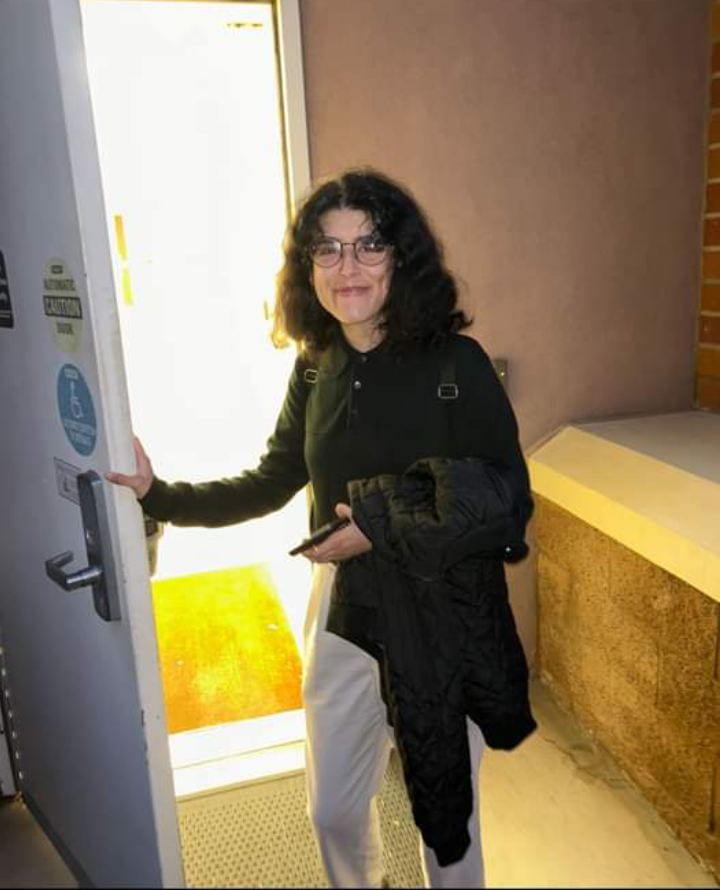
Karen Rodriguez
Major: English
Santa Ana Stories
Biography:
I am an undergraduate student pursuing a major in English and minor in education. My hopes and aspirations are to become a teacher and writer. I want to teach secondary school English and encourage students to write and create their own stories, while I do the same.
Course Description:
A survey and analysis of Santa Ana, California, this course explores the history and aspects of the city, such as: arts, culture, religion, immigration and migration, gentrification and urban planning. Using scholarly texts and multimedia, the class seeks to broaden students knowledge on Santa Ana, in order to inform perspective on the particular place and shape the discourse around it.
Enrollment Information:
Time: Friday, 8:00am-8:50am
Place: DBH 1420
Course Code: 87643
Faculty Mentor: Arcelia Gutierrez
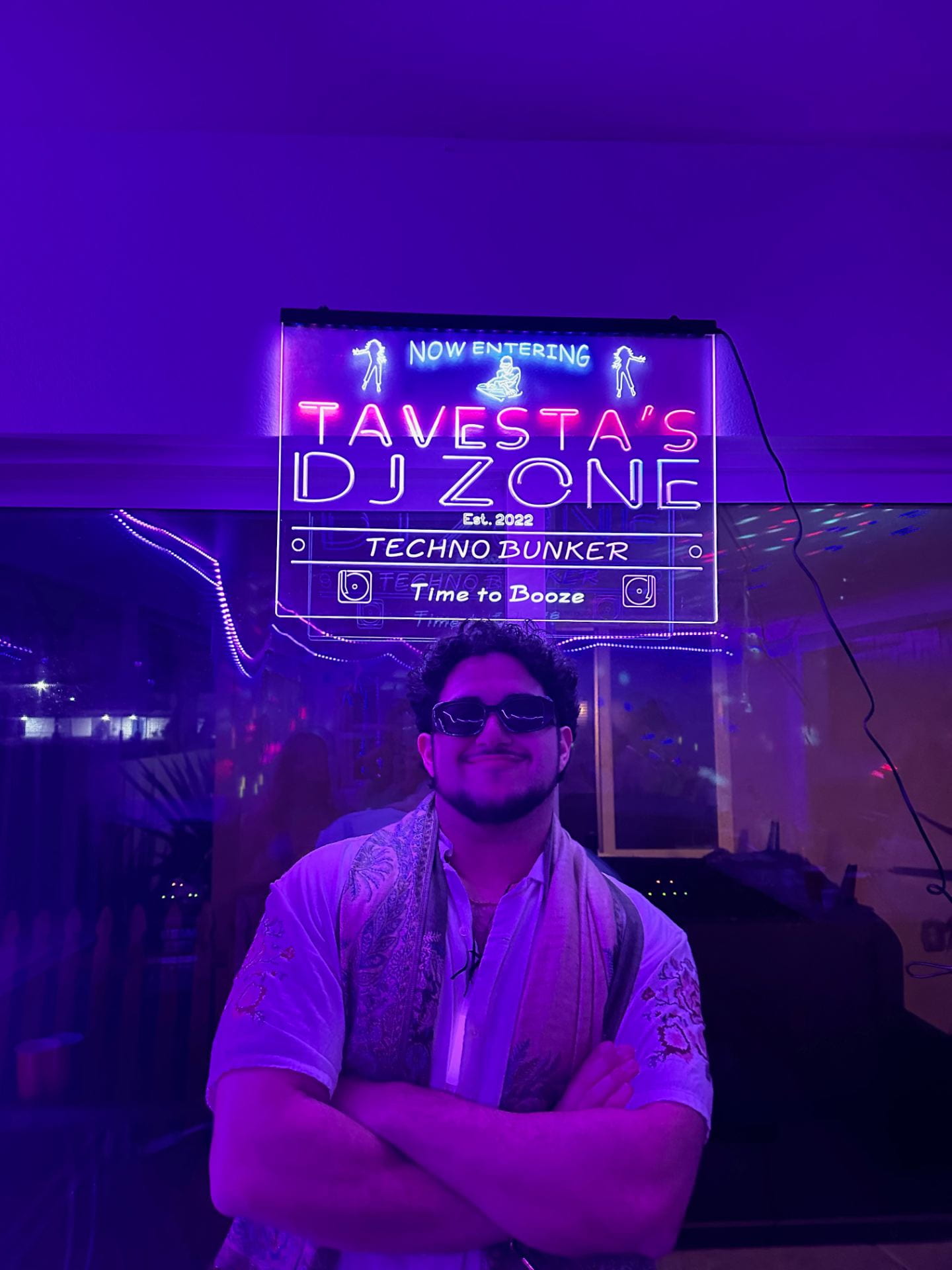
Arshan Harizavi
Major: Biological Science
Music and the Brain
Biography:
Hello everyone, and welcome to Music and The Brain! My name is Arshan Harizavi and I am a third-year Biological Sciences major here at UCI. Outside of my day-to-day life as a pre-med college student, I enjoy going out with my friends, working out, travelling, and even DJing around Orange County. Throughout my life, I have developed an overwhelming passion for music and continue to grow my intertest in its connection with the human brain and body. In this course, I hope to introduce several yet fascinating topics of discussion in regards to the undiscovered “bridge” between music and the brain. I hope that this course will help you all develop a newfound appreciation for music and its importance as a human necessity!
Course Description:
The purpose of this course is for students to assess the different behavioral, biological, and psychological ties in connection with the musical realm. The brain, the most complex part of the human body, allows for us to understand, feel, visualize, and create a bridge between ourselves as humans and the several different genres of music. I look to identify the several key components that help in the formulation of this “bridge” between music and the brain through the course of this class and its multi-modal structure.
This class will present academic information in an organized fashion yet will still allow for students to get involved in the scholarly conversation through several different interactive activities. Students will have the opportunity to involve their own personal experiences, emotions, and feelings in several different fashions as a way of implementing this new understanding of the so called “bridge” into their own lives. Throughout this class, we will be discussing several different connections between music and that of medicine, memory, language, culture, and of course its biological connection with that of the human brain. My aim in teaching this course is not to simply regurgitate information about the structure of the brain and music, rather it is to allow for students to self-evaluate their own perception of music and envelop the idea of “music” as a “biological need”.
Enrollment Information:
Time: Wednesday, 4:00pm-4:50pm
Place: TBA
Course Code: 87644
Faculty Mentor: Andrea Nicholas
